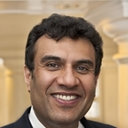Recrudescent tobacco exposure following heart transplantation: clinical profiles and relationship with athero-thrombosis risk markers.
Keywords
Abstract
To identify tobacco recidivism among 86 heart transplant recipients who were smokers but demonstrated compliance with a smoking cessation program pre-transplant, we used a questionnaire and randomly tested urine for nicotine and its by-products. In 36 patients, we also evaluated circulating levels of HS-CRP, homocysteine and MPV. Twenty-eight (32.5%) of 86 patients met our definition for tobacco exposure. In this cohort, 28 (32.5%) of 86 patients met our definition for tobacco exposure. Of these 28, 12 patients self-reported tobacco use and demonstrated biochemical verification; 14 patients demonstrated only biochemical evidence of significant tobacco exposure; 2 patients self-reported tobacco use but did not demonstrate biochemical positivity. Smoking cessation within 6 months of transplantation (r = 0.52) and time post-transplantation (r = 0.43) were independent predictors for recidivism of tobacco use, p < 0.01. No differences in HS-CRP, homocysteine and MPV levels were noted among the groups. Our investigation demonstrates a high rate of tobacco recidivism among heart transplant recipients, yet few admit to it. The adverse effects of tobacco do not appear to be directly modulated by an effect on athero-thrombotic risk markers.


